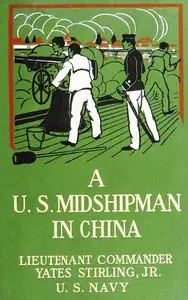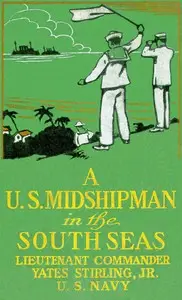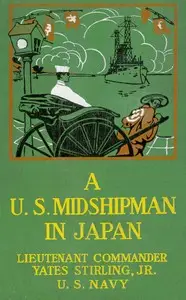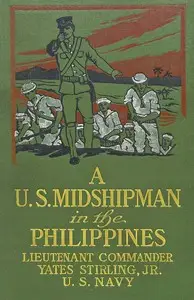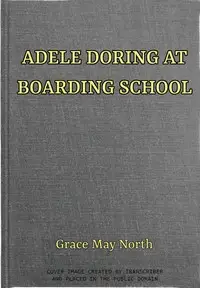"A United States Midshipman Afloat" by Lt. Com. Yates Stirling Jr. is a novel written in the early 20th century. The story centers on two newly graduated midshipmen, Philip Perry and Sydney Monroe, as they embark on their naval careers aboard the battleship U.S.S. “Connecticut.” The book explores themes of duty, friendship, and rivalry, particularly as the main character, Philip, navigates the complexities of his relationship with his divisional officer, Jules Lazar, whose past conflict with him introduces tension to their interactions. At the start of the novel, readers are introduced to the bustling Navy-Yard at Brooklyn, where Philip and Sydney excitedly begin their first day aboard the battleship. As tensions begin to surface, particularly concerning their relationship with Lazar, Philip's insecurities about potentially hostile encounters with his superior officer become apparent. A harrowing incident involving a life boat and a near-accident while at sea leads to serious consequences for Philip, intensifying his struggles with obedience and loyalty. Overall, the opening chapters set the stage for an intricate tale of naval life, personal growth, and the challenges of leadership within the military. (This is an automatically generated summary.)
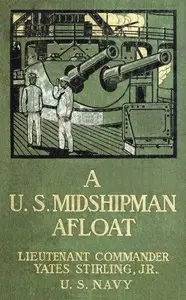
A United States Midshipman Afloat
By Yates Stirling
"A United States Midshipman Afloat" by Lt. Com. Yates Stirling Jr. is a novel written in the early 20th century. The story centers on two newly gradua...
Yates Stirling Jr. was a decorated and controversial rear admiral in the United States Navy whose 44-year career spanned from several years before the Spanish–American War to the mid-1930s. He was awarded the Navy Cross and French Legion of Honor for distinguished service during World War I. The elder son of Rear Admiral Yates Stirling, he was an outspoken advocate of American sea power as a strong deterrent to war and to protect and promote international commerce. During Stirling's naval career and following retirement, he was a frequent lecturer, newspaper columnist and author of numerous books and articles, including his memoirs, Sea Duty: The Memoirs of a Fighting Admiral, published in 1939. Describing himself, Stirling wrote, "All my life I have been called a stormy petrel. I have never hesitated to use the pen to reveal what I considered should be brought to public attention, usually within the Navy, but often to a wider public. I seem to see some benefits that have come through those efforts. I have always believed that a naval man is disloyal to his country if he does not reveal acts that are doing harm to his service and show, if he can, how to remedy the fault. An efficient Navy cannot be run with 'yes men' only."

